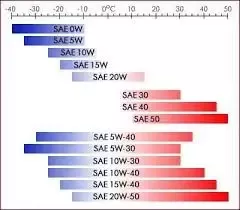Car engines can make various noises, and understanding these sounds is crucial for diagnosing potential issues. Let’s explore some common engine noises and their meanings:
- Squealing:
- There should be concern if you hear a squeal emanating from under the hood.
- Most often, this sound is related to a loose or worn-out serpentine belt.
- The serpentine belt controls essential engine accessories like the alternator and water pump.
- Ignoring the need for a replacement can lead to further damage.
- Other reasons for squealing include issues in the steering system or worn brake pads.
- If you experience squealing, address it promptly.
- Tapping/Clicking:
- A distinctive clicking, ticking, or tapping noise can occur when the oil level is low.
- Check the dipstick and add more oil if needed.
- However, low oil might indicate a leak or valvetrain problem, which requires attention.
- Ensure proper lubrication to prevent engine damage.
- Grinding:
- Grinding noises can result from various car systems, including the engine.
- Worn-out bearings within the engine can cause grinding sounds while driving or idling.
- If grinding occurs during shifting, it might be due to a worn-out clutch.
- Brakes also produce a notorious grinding sound when the pads are worn down.
- Whether it’s the engine or other components, take grinding noises seriously and seek professional help.
- Knocking:
- A distinct pinging or metallic knocking sound while driving is known as detonation knock.
- It occurs when the fuel and air mixture in a cylinder detonates unevenly.
- It has the potential to harm the piston and cylinder wall if not addressed.
- Lack of lubrication in the upper cylinder head area can also cause knocking.
Remember, unusual engine noises should never be ignored. Prompt diagnosis and necessary repairs can save your engine from further harm.
You have no time? Then read the short description below:
Engine noise can be caused by a variety of factors, including worn-out or damaged components such as bearings, pistons, valves, or belts. It could also be due to low oil levels, dirty oil filters, or issues with the exhaust system. Regular maintenance and timely repairs are essential to keep your engine running smoothly and quietly. If you’re experiencing unusual engine noise, it’s important to have it inspected by a professional mechanic to diagnose the root cause and prevent any further damage.
Read More: How Do You Diagnose Engine Noise?


